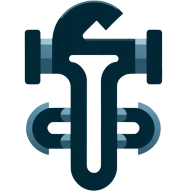Welcome to a deep dive into the fascinating world of smart home systems and their impact on plumbing. This blog post will explore how these innovative technologies are transforming traditional plumbing systems, making them more efficient, eco-friendly, and user-friendly. We'll delve into the various aspects of smart home systems, their benefits, and how they are shaping the future of plumbing.
The Intersection of Smart Home Systems and Plumbing
Smart home systems are rapidly becoming a staple in modern homes. They offer a myriad of benefits, from enhanced security to energy efficiency. But what about their impact on plumbing? It's a topic that's often overlooked, but it's equally important.
Smart home systems are revolutionizing plumbing in several ways. They are making it possible to monitor water usage, detect leaks, and even control water temperature remotely. This not only makes life easier for homeowners but also contributes to water conservation and energy efficiency.
Imagine being able to detect a leak in your home before it causes significant damage. With smart home systems, this is now a reality. These systems can monitor your plumbing and alert you to any potential issues. This means you can address problems early, saving you money on repairs and preventing water waste.
Moreover, smart home systems allow for remote control of water temperature. No longer do you have to wait for the water to heat up or worry about it being too hot. You can set the desired temperature from your smartphone, ensuring a comfortable and safe water temperature at all times.
The Benefits of Smart Home Systems in Plumbing
The integration of smart home systems into plumbing offers numerous benefits. One of the most significant advantages is the potential for water conservation. With smart home systems, you can monitor your water usage and make adjustments as necessary. This not only helps to conserve water but also can result in significant savings on your water bill.
Another benefit is the ability to detect leaks early. Traditional plumbing systems often don't reveal leaks until significant damage has occurred. With smart home systems, you can receive alerts at the first sign of a leak. This allows you to address the issue promptly, preventing further damage and saving money on repairs.
Smart home systems also provide the convenience of remote control. You can adjust your water temperature, turn your water on or off, and even schedule your sprinklers from your smartphone. This level of control can make your life easier and more efficient.
The Future of Plumbing with Smart Home Systems
The integration of smart home systems into plumbing is just the beginning. As technology continues to advance, we can expect to see even more innovative features.
For instance, imagine a system that can predict potential plumbing issues before they occur. This could be based on patterns in your water usage or changes in your water pressure. Such a system could alert you to potential problems, allowing you to take preventative action.
Another possibility is the integration of artificial intelligence into smart home systems. This could allow for even more precise control over your plumbing. For example, the system could learn your habits and adjust your water usage accordingly. This could result in even greater water conservation and efficiency.
Challenges and Considerations of Smart Plumbing Systems
While smart home systems offer many benefits for plumbing, they also present some challenges. One of the main concerns is the cost. Installing a smart home system can be expensive, and not all homeowners may be able to afford it.
Another challenge is the need for a reliable internet connection. Smart home systems rely on Wi-Fi to function, and without a stable connection, the system may not work properly. This could be a significant issue in areas with poor internet connectivity.
Moreover, there are also concerns about data privacy. Smart home systems collect a lot of data about your water usage and habits. It's essential to ensure that this data is secure and not susceptible to hacking.
Making the Switch to Smart Plumbing Systems
If you're considering making the switch to a smart plumbing system, there are a few things to keep in mind. First, consider your budget. While smart home systems can save you money in the long run, the initial cost can be high.
Next, consider your internet connectivity. If your internet connection is unreliable, a smart home system may not be the best choice for you. However, if you have a stable internet connection, a smart home system can offer many benefits.
Finally, consider your privacy. Make sure to choose a system that prioritizes data security. This will help to protect your personal information and give you peace of mind.
Conclusion: The Future is Smart
The integration of smart home systems into plumbing is a game-changer. It offers numerous benefits, from water conservation to early leak detection. While there are some challenges to consider, the potential advantages make it a worthwhile investment for many homeowners.
As technology continues to advance, we can expect to see even more innovative features in smart home systems. The future of plumbing is smart, and it's an exciting time to be a homeowner.
Embracing the Future: Smart Home Systems and Plumbing
In conclusion, the impact of smart home systems on plumbing is profound and transformative. These systems offer numerous benefits, from water conservation to convenience, and represent the future of plumbing. While there are challenges to consider, the potential advantages make smart home systems a worthwhile investment. As we look to the future, it's clear that smart home systems will continue to play a pivotal role in shaping the plumbing industry.

